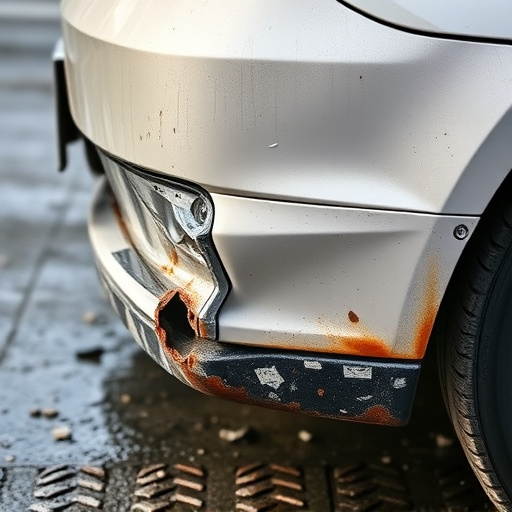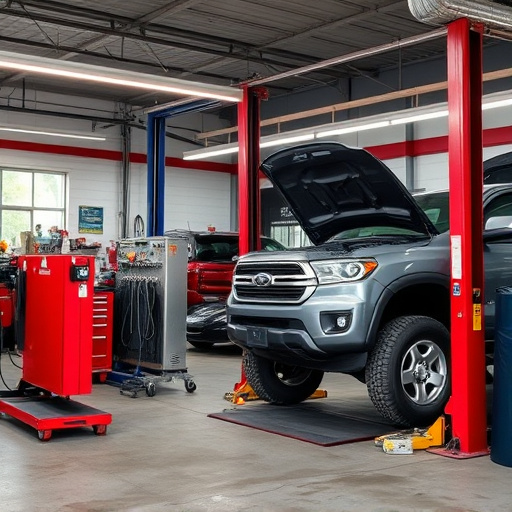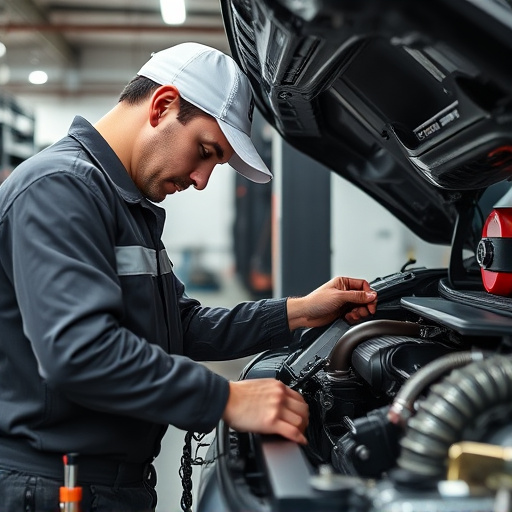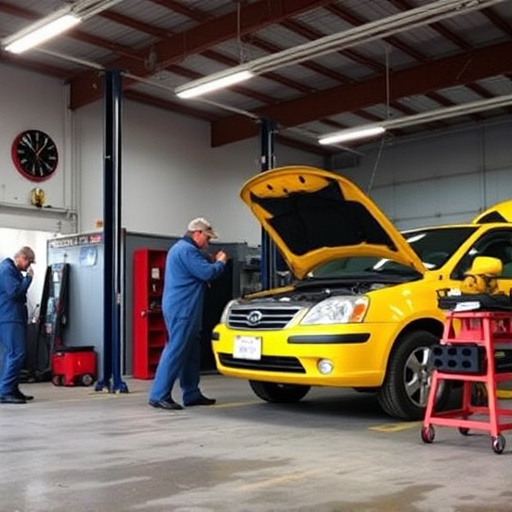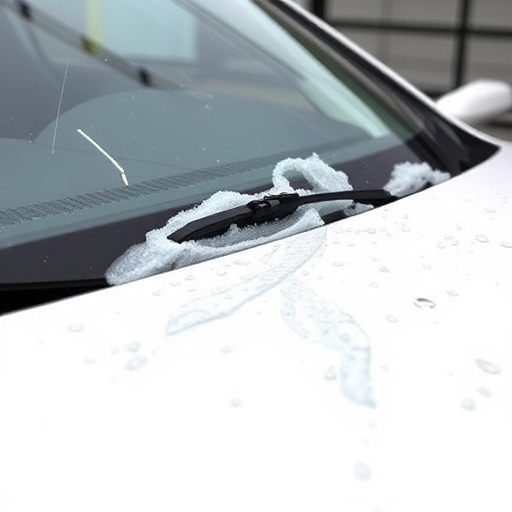Repair quality concerns are a significant issue in the automotive sector, impacting vehicle safety, performance, and owner maintenance costs. Both consumers and auto repair services face legal implications if repairs fall below industry standards. To mitigate these risks, businesses should prioritize quality assurance through approved parts, certified technicians, regular training, and feedback systems. Encouraging customer reviews and complaints aids in continuous improvement, enhancing trust and long-term business success while addressing pressing repair quality concerns.
“In any industry, ensuring repair quality is paramount to consumer satisfaction and safety. This article delves into the intricate world of repair quality concerns, exploring common issues like faulty workmanship, incorrect parts, and inadequate training that can lead to severe legal implications. We examine the rights and responsibilities of businesses and consumers, offering practical strategies to prevent and address these issues legally. Understanding these aspects is crucial for maintaining a robust and trustworthy reparative ecosystem.”
- Understanding Repair Quality Concerns: Common Issues and Their Impact
- Legal Implications of Substandard Repairs: Rights and Responsibilities
- Strategies for Addressing and Preventing Repair Quality Issues Legally
Understanding Repair Quality Concerns: Common Issues and Their Impact

Repair quality concerns are a significant issue within the automotive industry, particularly in auto repair shops and vehicle restoration facilities. Common problems include incorrect or incomplete repairs, substandard parts used, and failure to adhere to industry standards and best practices. These issues can have detrimental effects on both individual vehicles and the reputation of the repair shop itself. For instance, a poorly executed bumper repair may lead to structural weaknesses, compromising the safety and integrity of the vehicle.
Vehicle owners often face challenges when dealing with low-quality repairs, such as reduced vehicle performance, increased maintenance costs, and potential safety hazards. Moreover, legal implications arise when subpar work results in accidents or further damage. Understanding these repair quality concerns is crucial for both consumers and businesses alike to ensure fair practices and maintain the integrity of the auto repair industry, including bumper repair and other specialized services like vehicle restoration.
Legal Implications of Substandard Repairs: Rights and Responsibilities

When it comes to repair quality concerns, understanding the legal implications is crucial for both consumers and service providers. In many jurisdictions, auto dent repair, fender repair, or automotive repair services are governed by consumer protection laws that outline specific rights and responsibilities. If a repair shop fails to meet industry standards or provides substandard work, customers have the right to seek redress through various legal channels.
This may include demanding compensation for any additional expenses incurred due to poor workmanship, or even initiating legal action if the issue is severe enough. Repair shops, on the other hand, must adhere to contractual agreements and industry regulations to avoid potential lawsuits and financial penalties. By prioritizing quality assurance measures, such as using approved parts and following best practices for auto dent repair, fender repair, or automotive repair, businesses can safeguard themselves from legal implications and foster trust with their customers.
Strategies for Addressing and Preventing Repair Quality Issues Legally

When it comes to addressing repair quality concerns legally, proactive strategies are key. Auto body restoration shops and auto repair shops should implement detailed quality control measures, ensuring every repair process is documented and complies with industry standards. This includes utilizing certified technicians who stay updated on the latest repair techniques for various vehicle types, from minor scuffs like car dent repairs to more complex structural issues. Regular training sessions can help maintain high-quality standards, minimizing errors and customer dissatisfaction.
Additionally, establishing a robust feedback system allows shops to promptly identify recurring problems and implement corrective actions. Encouraging customer reviews and complaints provides insights into potential areas of improvement in auto repair services. By fostering an environment of continuous quality enhancement, these measures not only protect against legal implications but also build trust with clients, ensuring long-term business success.
In addressing repair quality concerns, it’s crucial to understand common issues, their impact, and the legal implications that arise from substandard repairs. By equipping ourselves with strategies to prevent and address these problems, we can ensure a more robust and accountable approach to repairs. Proactively managing repair quality not only protects consumers but also fosters trust and transparency in the industry, ultimately enhancing customer satisfaction and ensuring long-lasting relationships.


